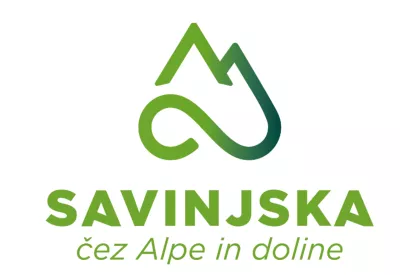General information
RDP Priority
- P6. Social inclusion and local development
RDP Focus Area
- 6B: Local development
RDP Measure
- M19: LEADER/CLLD
Beneficiary type
- Public authority / body
Summary
Sustainable tourism is a priority for the Zgornja Savinjska and Šaleška dolina (Upper Savinja and Šalek Valley) LEADER Local Action Group (LAG) in Slovenia. It has helped the local tourism sector by improving strategic and territorial approaches to business development in ways that also catalysed synergies for community services and quality of life.
An innovative concept of integrated tourism products (ITPs) was developed and promoted following a comprehensive mapping of opportunities and needs for visitor facilities in the LAG area. In addition, new strategic branding and related capacity building tools boosted the area’s potential for consistent messaging and visitor attractions. Community training proved key for increasing ownership and commitment to common strategic tourism development approaches and ITPs.
Reinforcing the resilience of sustainable jobs and diversified rural economies were driving forces behind this LEADER project.
Results
LEADER support was used for:
- A comprehensive updated analysis of existing products and programmes in the region related to sustainable tourism, employment and community development.
- Promotion of a locally innovative ITP concept and guidelines.
- Area and local marketing strategies including community workshops and instruction manuals for branded approaches, as well as new promotional materials, campaigns and projects showcasing the area’s tourism popularity and potential.
- Improved appreciation of inclusive approaches to sustainable development achievements.

Promoter
Development agency of the Savinjsko Šaleške region
Funding
Total budget 133 646 (EUR)
RDP support: 97 183 (EUR)
Private/own: 36 463 (EUR)
Ressourcen
Documents
Context
The LAG Zgornja Savinjska and Šaleška dolina in Slovenia have a focus in their Local Development Strategy (LDS) on optimising the territory’s natural tourist assets. This strategy is boosting long-term resilience of rural community economies by supporting diversified economic bases. Tourism and local food sectors feature prominently in the LAG board membership.
LDS priorities support the creation of interesting and accessible tourist services and information. This is seen as important for the development of green and accessible tourism in the Šaleška Valley. Supporting specialised schemes and products provides the LAG area with additional value for visitors and raises the quality of life for the local population, helping ensure the inclusion of all groups.
Cooperation is needed to agree on mutual priorities. This requires resources, particularly for strengthening integration and networking in LEADER fields like funding inclusive community-led approaches for investing in new business and marketing models or entrepreneurial initiatives. The potential exists to build and stimulate development and entrepreneurial dynamics across the area. Synergies are possible to strengthen basic infrastructure and services while building an inclusive society that enjoys the valley as an attractive place to live, work and visit.
Resources for sustainable tourism developments can be best targeted through a coordinated programme of actions. These should rely on up-to-date knowledge about an area’s opportunities and needs. Gaps existed in the LAG territory’s strategic tools for joined-up tourism and community development.
Objectives
A LEADER project was developed to involve as many stakeholders as possible in designing coordinated support options for tourism and new employment. This would enhance existing initiatives and experiences to:
- Produce a comprehensive, integrated analysis of the state of the entire region’s tourist sector to confirm insight and evidence-led targeting criteria for supporting green tourism and sustainable development, via strategic development guidelines for the innovative concept of ITPs.
- Increase involvement of target groups in ITPs by new strategies that foster employment benefits and quality of life by promoting priority products and modern marketing to increase the visibility of the area and its tourist assets.
Raising awareness within rural communities about entrepreneurship opportunities and prospects to build related capacity, including in business innovation and green jobs from ITPs, through campaigns and training that help diversify rural economic bases.
Activities
The strategy development involved these actions:
- Analysis of existing products and programmes in the region related to sustainable tourism, employment and community development.
- Agreeing on common tourism branding tools, such as manuals for using agreed brand names and visual identities consistently.
- Creating a common tourist identity to accompany the branding that tells a story for everyone to use while promoting the overall territory as a tourist destination.
- Producing ten individual localised branding identities and stories for municipalities and towns by bottom-up processes.
- Preparing common templates for communication tools encouraging community-led advertising of "What to discover? – Kaj odkriti?” locally.
- Development of strategic guidelines for ITPs.
- Creating ITPs for key products including printed and web-based marketing or advertising content for campaigning.
- Formalising and resourcing effective planning and management of cooperation, networking and training that embraces all tourism stakeholders.
Main results
LEADER funding for the above activities helped the project realise its ambitions resulting in:
- A comprehensive updated analysis of existing products and programmes in the region related to sustainable tourism, employment and community development.
- Promotion of a locally innovative ITP concept and guidelines.
- New area and local marketing strategies including community workshops and instruction manuals for branded approaches.
- New promotional materials, campaigns and projects showcasing the area’s tourism popularity and potential.
- Improved appreciation of inclusive approaches to sustainable development achievements.
Key lessons
- Diversified rural economies provide more long-term resilience than those dependent on sectors in transition.
- Community-based capacity and competencies were built, which motivates confidence for continuous coordinated development and networking.
- Cooperation for community-led development can produce effective results by adequately resourcing the animation of many key players.
- Keeping area marketing campaigns updated with local knowledge and communication trends is a success factor.
Contact Information
Email: info@ra-sasa.si
